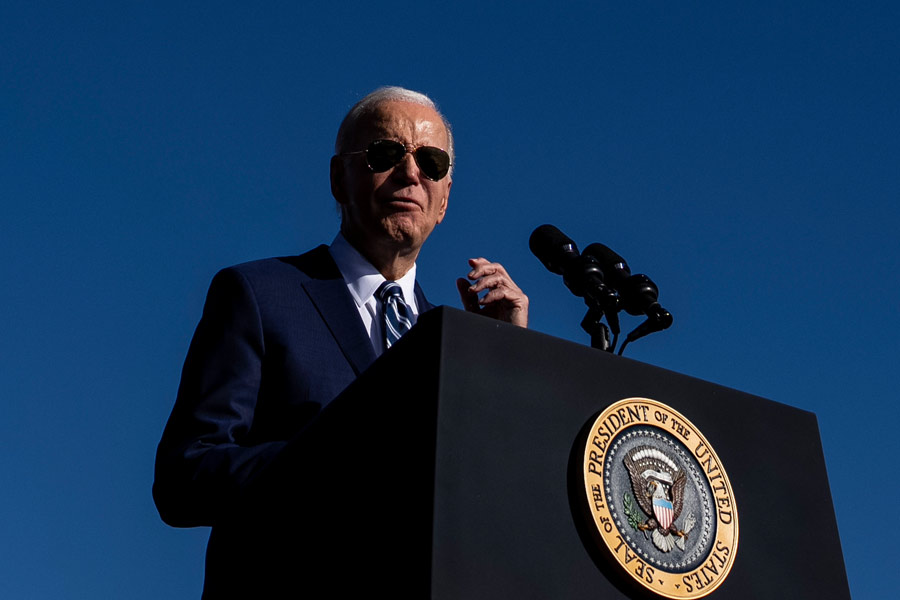The Biden administration has advised Israel to delay a ground invasion of the Gaza Strip, hoping to buy time for hostage negotiations and to allow more humanitarian aid to reach Palestinians in the sealed-off enclave, according to several US officials.
US officials also want more time to prepare for attacks on US interests in the region from Iran-backed groups, which officials said are likely to intensify once Israel moves its forces fully into Gaza.
The administration is not making a demand of Israel and still supports the ground invasion and Israel’s goal of eradicating Hamas, the group controlling Gaza that killed about 1,400 people in terrorist attacks October 7, officials said.
But fast-moving events since Hamas released two American women Friday have spurred the administration to more urgently suggest that Israelis allow time to negotiate the release of 212 other hostages, officials said.
President Joe Biden called Israeli Prime Minister Benjamin Netanyahu on Sunday to discuss the latest developments, the White House said. Biden also spoke to the leaders of Canada, France, Germany, Italy and Britain.
Biden and Netanyahu agreed that after the entry of the first two convoys of humanitarian aid into Gaza on Saturday, there “will now be continued flow of this critical assistance”, a White House summary of the call said. The leaders also “discussed ongoing efforts to secure the release of all the remaining hostages taken by Hamas — including US citizens — and to provide for safe passage for US citizens and other civilians in Gaza who wish to depart”, the White House said.
Two US officials said the advice to Israelis to hold off on the land war was being conveyed through defence secretary Lloyd Austin because the Pentagon is helping advise Israel on military actions, including the ground invasion.
Austin has had near-daily calls with his Israeli counterpart, Yoav Gallant, to discuss operational matters, American arms shipments to Israel and US military deployments to the region. He has also talked about recovering the hostages as a priority, one US official said.
A diplomat from the Israeli embassy in Washington denied that the US government was advising Israelis to delay the ground invasion and said: “We have a close dialogue and consultations with the US administration. The US is not pressing Israel in regards to the ground operation.”
An official with knowledge of the hostage negotiations, which are taking place mainly through Qatar, said Hamas had warned that a ground invasion would make hostage releases much less likely. Qatar has close ties to the political leaders of Hamas.
US secretary of state Antony Blinken avoided answering directly when asked on CBS News’ Face the Nation on Sunday whether the US was asking Israel to delay a ground invasion to allow time for hostage negotiations. He stressed, though, that the US was giving advice to Israelis on the invasion.
“It’s important, as we said, not only what they do, but how they do it,” he said, “particularly when it comes to making sure that civilians are as protected as they possibly can be in this crossfire of Hamas’ making.”
Blinken also said it was important that more food and medical supplies get into Gaza, as the humanitarian crisis worsens. Israel imposed a complete cutoff of water, electricity and food on the impoverished coastal strip of 2 million people soon after the October 7 attacks. Israel has maintained a naval blockade of Gaza since 2007.
US officials say they hope the ground invasion will be delayed, but they are wary of playing into the narrative Iran and its allies have long spread about the US secretly controlling Israel. There has been a flurry of drone attacks targeting US forces in the region, US officials said leaving the impression that US officials are the ones pulling the strings in Israel could drag the United States into a direct conflict with Iran or pro-Iran groups in the region.
New York Times News Service










